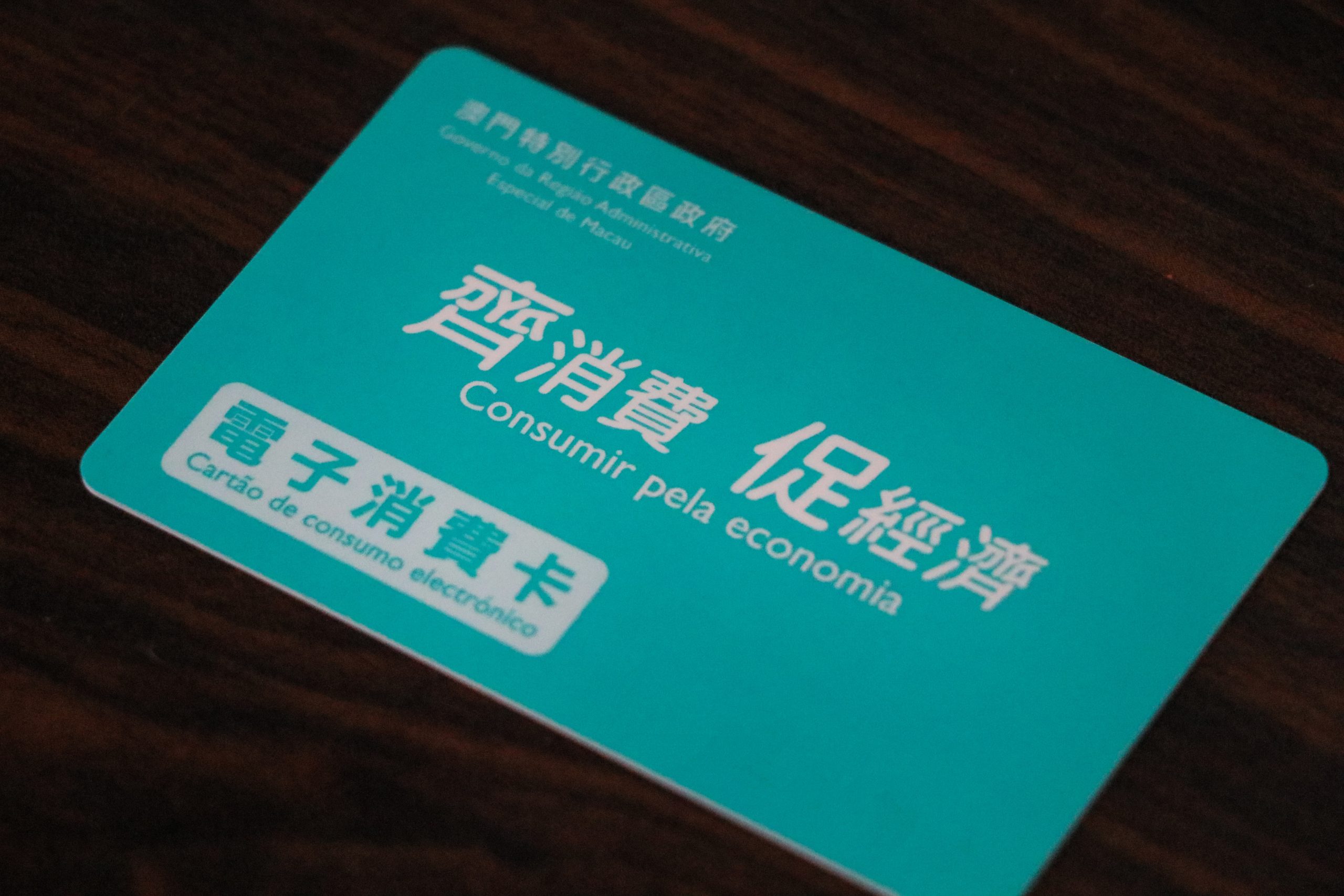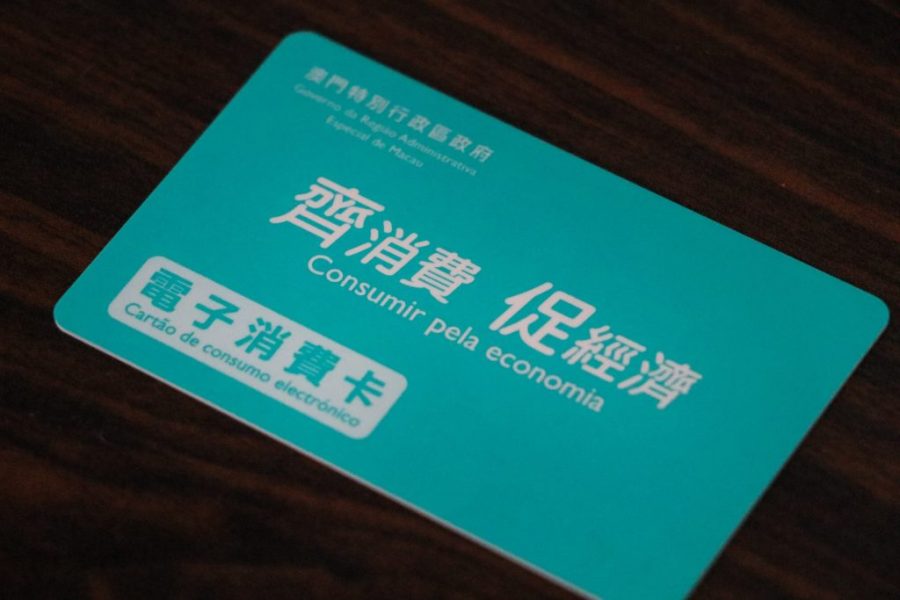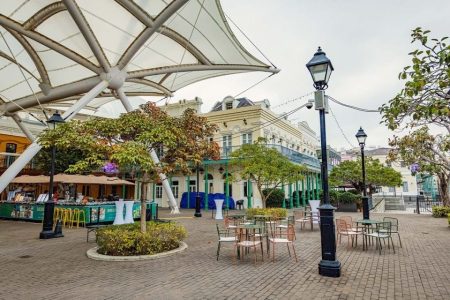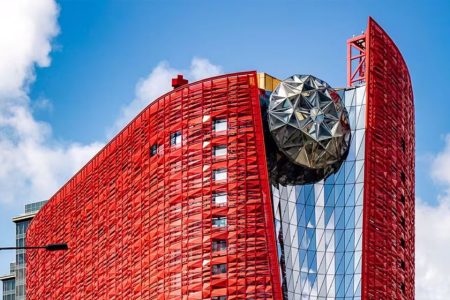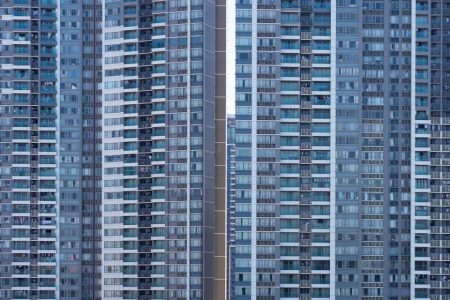Macao residents can look forward to a new round of the electronic consumption benefit scheme next month, which aims to relieve financial hardship and support local businesses, in the wake of the ongoing adverse impact of the prolonged Covid-19 pandemic on the city’s economy.
Chief Executive Ho Iat Seng announced the forthcoming roll-out while answering a question from directly-elected lawmaker Wong Kit Cheng’s question during a Q&A session in the legislature’s hemicycle.
Ho underlined that the government has been aware that the “prolonged” Covid-19 pandemic has had repercussions on Macao’s economy and civil society, and understands the difficulties that residents and small and medium-sized enterprises (SMEs) are facing.
Ho noted that last year’s electronic consumption benefit scheme, which comprised a MOP 5,000 start-up fund and a MOP 3,000 immediate discount grant, generated a lot of controversy about how it was operating, but in fact the programme supported many SMEs’ business operations and many residents’ employment.
Consequently, Ho said, the upcoming round of the electronic consumption benefit scheme would be rolled out in a similar way to last year.
In addition to a new round of the electronic consumption benefit scheme, Ho said, the government is also studying other possible measures that can support SMEs, such as subsidising their water and electricity bills. Ho said that the government will submit a bill to the legislature amending its budget for 2022 so that a new round of the electronic consumption benefit scheme and other financial support measures can get off the ground next month.
Ho also noted that local residents started to receive this year’s MOP 10,000 “wealth-sharing” cash hand-outs early this month, urging those who have received the cash hand-outs to spend it more often with the aim of boosting the local economy. Ho noted that local residents’ cash hand-outs amount to around MOP 7 billion, equivalent to around a month’s retail sales, adding that this amount could help support many SMEs’ business operations and stabilise residents’ employment.
Ho also noted that eligible local residents will start receiving a tax rebate of their personal income tax next month, also urging them to spend more often after receiving the tax rebate.
Later in the Q&A session, Ho admitted Macao’s continuing heavy reliance on a single economic sector and a single source of visitors, is why the city is suffering from a large “synergy” effect amid the Covid-19 pandemic.
Ho noted that the Covid-19 pandemic has reduced the number of visitors to Macao to the level around the time when the Macao Special Administrative Region was established in December 1999, as last year’s visitor number only stood at around seven million.
Ho noted that there were around 5,400 retail outlets, restaurants, eateries and other catering venues in 2000, employing around 22,000 people, while the number of these venues rose to around 9,600 in 2020, employing around 74,000 people.
Ho said that such a large number of retail outlets and catering outlets nowadays are also serving around seven million visitors a year, as well as local residents, adding that this is also a reason why local businesses are suffering difficulties amid the Covid-19 pandemic.
Ho also acknowledged that as various areas in mainland China are being hit by a surge in Covid-19 local transmissions, mainlanders have been discouraged from visiting Macao.
Ho noted that the average daily number of visitors to Macao had increased to around 30,000 earlier this year. However, Ho said, over recent weeks mainland China has been facing a scenario of fighting Covid-19 that is worse than last year, and the recent surge in Covid-19 local transmissions in Guangzhou is having a further adverse impact on Macao’s number of visitor arrivals.
The chief executive said that he was not optimistic about the number of visitors to Macao during the upcoming May Day Golden Week.
Ho pledged that once the ongoing Covid-19 wave in mainland China stabilises, the local government will discuss with the relevant authorities the possible resumption of the authorisation to organise tour groups to Macao – which has been suspended since the beginning of the Covid-19 pandemic in early 2020.
During the session, Ho also acknowledged that the city’s six gaming operators have been shouldering their corporate social responsibility by not laying off their staff.
Ho said that while some of the gaming operators’ staff have had to take unpaid leave or half-paid leave, none of the six operators has carried out any major lay-offs.
Ho also admitted that the latest unemployment rate among local residents has further increased to 4.3 per cent, which was partially due to the closures of some junket companies and satellite casinos over the past few months.
Finally, Ho also acknowledged that the government hasn’t any new ideas to boost Macao’s birth rate, adding that whether local residents want to procreate is a matter of personal choice.
Ho said that Macao’s latest birth rate has further dropped to 7.4 per 1,000 population from nine per 1,000 population when he ran his chief executive election campaign in 2019.
Ho underlined that the government has been implementing various measures that are favourable to boosting the city’s birth rate, such as 15-year free education and high-level spending on university education, The Macau Post Daily reported.
